Started in the early 1900s by four Polish immigrant brothers as a simple movie theater business, following several decades of growth, Warner Brothers Pictures was formally incorporated in 1923 as a fully-fledged film studio. Since then, Warner Brothers has remained at the forefront of the film business and a pioneer in technologies like synced sound and color film. Over the years, Warner Brothers produced such film classics as Casablanca, A Clockwork Orange, Goodfellas, and Blade Runner.
One of Warner Brothers’ most iconic films also contains one of the earliest and most celebrated gay-coded characters in mainstream American cinema: Sal Mineo’s tragic Plato in 1955’s Rebel Without a Cause. Other notable inclusive films released by Warner Brothers over the years include Dog Day Afternoon (1975), The Color Purple (1985), Interview with the Vampire (1994), and Midnight in the Garden of Good and Evil (1997). Notably, nearly every one of those films was based on source material that included LGBT characters. More recently, Warner Brothers has also released inclusive films like Alexander (2004), Kiss Kiss Bang Bang (2005), V For Vendetta (2005), and J. Edgar (2011).
In 2014, Warner Brothers released 22 films of which 7 included appearances by LGBT people, amounting to 32%. Five of these films passed the Vito Russo Test.
BLENDED
Widest theatrical release: 3555 theaters
This year's Adam Sandler comedy includes several gay and gender-identity jokes, as has become pretty much standard for mainstream films he headlines. In the case of Blended, there are several jokes about Drew Barrymore's character being mistaken for being in a lesbian relationship with her business partner, none of which hinge on stereotypes. There are also multiple jokes about Sandler's daughters being mistaken for boys due to their clothes and haircuts. One scene in which an announcer is welcoming couples to a resort includes his mentioning "same-sex domestic partners" and shows a male couple with a baby. Another scene features Barrymore's character descending a staircase while various people watch her, and different songs representing their thoughts play in the background. Among them is an older Indian woman looking lustfully at her while Katy Perry's "I Kissed a Girl" plays before she is nudged by her annoyed husband. All of these moments are emblematic of the most common ways LGBT people and content appears in contemporary, mainstream comedies: in service of jokes rather than story.
 HORRIBLE BOSSES 2
HORRIBLE BOSSES 2
Widest theatrical release: 3400 theaters
The sequel to 2011's Horrible Bosses rehashes the first film's vulgarity laced story of three men bumbling through a kidnapping scheme. Also returning is the nymphomaniac dentist Dr. Julia Harris, who is still depicted as an aggressive, sociopathic sexual-harasser. At the film's end, Julia is shown visiting her ex-employee Dale (one of the three leads) in the hospital, where she makes amorous glances towards his wife before implying that she raped him while he was in a coma, and also tells him that she intends to sleep with his wife when they go away for a spa trip. Since the implied desire for Dale's wife she displays seems genuine in context, we feel compelled to count her as a bisexual character. We also wish that weren't the case. Between her behavior in the first film and the characteristics she displays in this one, many of Julia's most loathsome personality traits fall in line with some of the worst stereotypes about bisexual people, and the eleventh hour revelation about her attraction to women exists for no other reason than to make Dale squirm. The film also contains a number of jokes about the three men pretending to be gay or simulating sex acts with each other, which, despite the insertion of character lines asserting their acceptance of gay people, widely miss the mark.
 JERSEY BOYS
JERSEY BOYS
Widest theatrical release: 2905 theaters
Director Clint Eastwood's 1950s-set Jersey Boys follows the young men who became the hit musical group The Four Seasons, who were discovered and first signed by openly gay producer and hit-maker Bob Crewe. In his very first scene, Crewe is shown flirting with one of the band members, who remarks to the camera afterwards that, "I remember at the time thinking there was something off about this guy. I mean, this was 1959. People thought Liberace was just, you know, theatrical." A later scene sees another band member taunt Crewe about a man with whom he was seen. Despite these small digs and his only appearing in a handful of scenes, Crewe is depicted in the film as an integral part of the group's success, very much at ease with himself, confident, and talented. However, considering how much time is spent watching the four straight leads flirt, sleep with, and date women, it would have been nice if Crewe had even been shown with any kind of remotely comparable romantic interest.
 THE LEGO MOVIE
THE LEGO MOVIE
Widest theatrical release: 3890 theaters
Among the multitude of characters pulled from history and popular culture in The Lego Movie, was the great wizard Dumbledore from the Harry Potter book series and subsequent films. Though it was never addressed in any of the source material he appeared in, author J.K. Rowling revealed during a speaking engagement later on that Dumbledore was in fact a gay man, spurring worldwide headlines. In this film, Dumbledore is simply depicted as one of many recognizable characters living together in a fantasy world, though he does have a few lines and is the subject of several jokes about the pronunciation of his name. For some reason he is also depicted as having a very high voice, though it's unclear whether this is an offensive joke about his sexual orientation or simply meant to be a goofy voice.
 TAMMY
TAMMY
Widest theatrical release: 3465 theaters
Of all the films from the major Hollywood studios GLAAD tracked this year, Tammy was the only one to feature major characters who were openly and unashamedly depicted as LGBT and cast in a positive light. In the final third of this road-trip comedy, Tammy and her grandmother seek refuge with Tammy's aunt Lenore and her partner Susanne, played by Kathy Bates and Sandra Oh respectively. Soon after we first meet them, the couple throws a massive Fourth of July party at their lake house for what looks like several hundred other lesbians, which becomes the setting for the film's climactic scenes. One of those being Tammy's heart to heart conversation with Lenore, who gives her the reality check she needs to reconsider her path in life. Lenore and Susanne are both depicted very naturally, and get quite a few jokes of their own, most of which have absolutely nothing to do with their sexual orientation. The fact that this is such a notable thing in a mainstream Hollywood comedy says volumes about how far there is yet to go.
 THIS IS WHERE I LEAVE YOU
THIS IS WHERE I LEAVE YOU
Widest theatrical release: 2868 theaters
Four adult siblings mourn their father in this drama based on the novel by Jonathan Tropper, which also reveals a same-sex relationship close to the film's end. When they are asked to sit shiva by their mother Hillary following their father's death, the now grown Altman family is forced to live in the same house for several days where their old secrets and resentments come to the surface. Among those is the relationship their mother is now having with her female neighbor and family friend, Linda. Near the film's conclusion Hillary tells her children that she and Linda grew close and fell in love during her husband's long illness, and that he knew of their relationship and approved. Though one of the kids offhandedly refers to his mother as a lesbian, seeing as both Hillary and Linda had previously been in loving relationships with men – and in Hillary's case a very sexual one, as she herself recalls – we are counting them as bisexual characters. The scenes are well handled, but it's another instance in which the LGBT content was treated as an eleventh-hour "reveal" rather than an organic component of the overall story. We wish it had come sooner.
 VERONICA MARS
VERONICA MARS
Widest theatrical release: 347 theaters
The film adaptation of the cult TV show Veronica Mars made its way to theaters thanks to a historically successful crowd funding campaign, and creator Rob Thomas used the opportunity to bring back many familiar faces from the TV show for a new mystery for Veronica to unravel. One of those was Luke Haldemen, a very minor character from the original series, whom we now learn is engaged to socialite Gia. Luke is a minor character in this film as well, though at one point he becomes the prime murder suspect. After he's seen going into a West Hollywood bathhouse, it's revealed that his relationship with Gia is just a cover to protect his inheritance. Though it's hardly the most flattering portrayal of a gay person, it's appropriate in the context of the film/show's world.

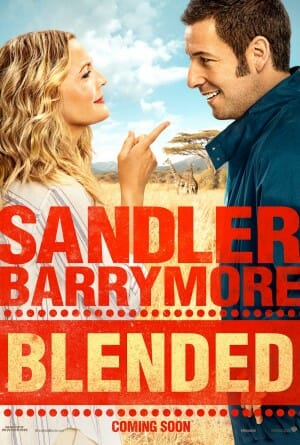
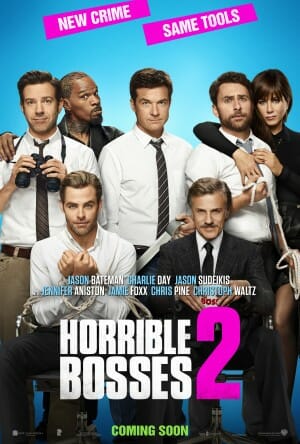 HORRIBLE BOSSES 2
HORRIBLE BOSSES 2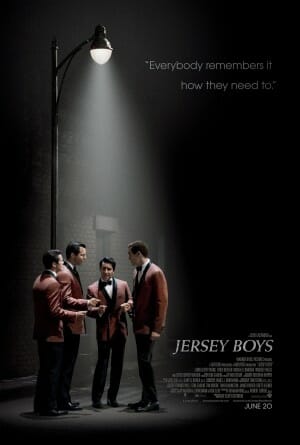 JERSEY BOYS
JERSEY BOYS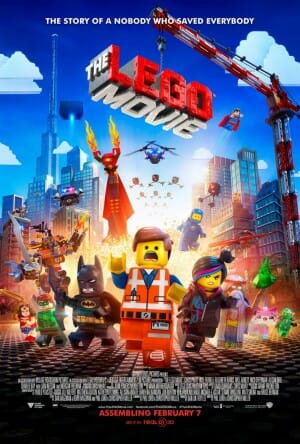 THE LEGO MOVIE
THE LEGO MOVIE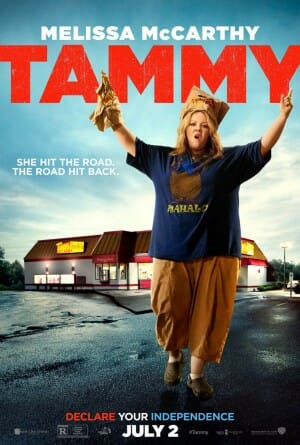 TAMMY
TAMMY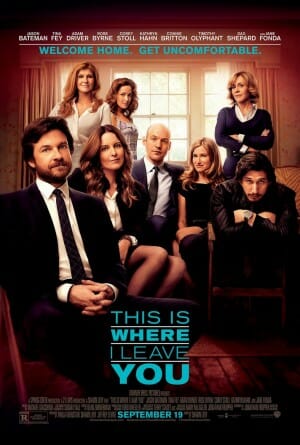 THIS IS WHERE I LEAVE YOU
THIS IS WHERE I LEAVE YOU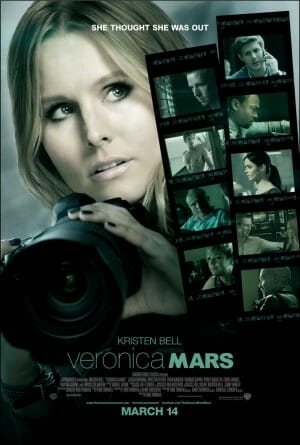 VERONICA MARS
VERONICA MARS










